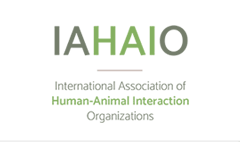Abstract
Studies in Western countries have demonstrated the benefits of pets for humans. However, there are not many studies on human-pet relationships in different cultures and societies; for example, few in Asia. This questionnaire survey demonstrated that attachment to pets benefits the psychosocial development of schoolchildren aged 9 to 16 years (n = 599: 340 boys and 259 girls, 284 rural students and 315 urban students) in Hunan Province, central south China. Children with higher attachment to their pets scored higher on the scales of self-efficacy and empathy than those with lower attachment and those who had no pets. Moreover, girls scored higher than boys, and children living in urban areas scored higher than those who lived in rural areas. With regard to pet species (kinds), children’s attachment to homeotherms (warm-blooded animals such as cats, dogs, rabbits, hamsters, and birds) was higher than their attachment to poikilotherms (cold-blooded animals such as fish and tortoises). The results are concomitant with previous studies in Western countries. Factors such as children’s attachment to pets, gender, and living areas also affected the mental development and socialization of children in China. Therefore, this study demonstrated evidence that the psychosocial effects of pet keeping on children can be generalized even if the culture and society is different from those in Western countries. This study could contribute to better rearing and education of children worldwide. Practitioners, teachers, and parents should consider the choice of pet species and appropriate caring and interaction skills to help children build attachment with their pets. More factors affecting pet attachment should also be investigated further.
Recommended Citation
Song, Yanxia; Hirose, Toshiya; and Koda, Naoko
(2019)
"Psychosocial Impact of Pet Keeping on Schoolchildren in China,"
People and Animals: The International Journal of Research and Practice: Vol. 2
:
Iss.
1,
Article 4.
Available at:
https://docs.lib.purdue.edu/paij/vol2/iss1/4


